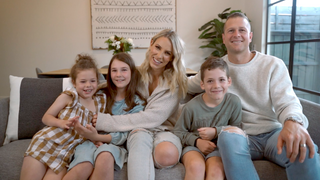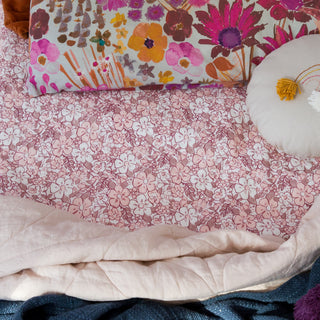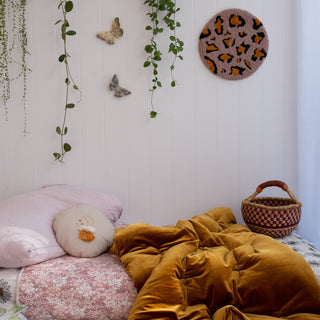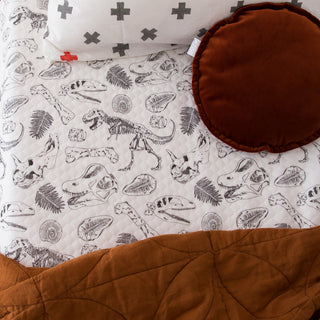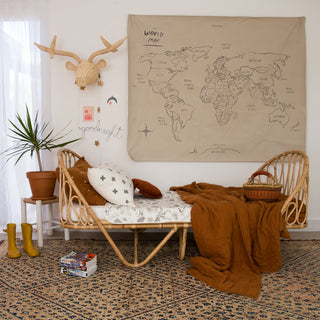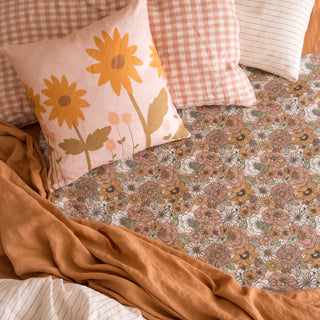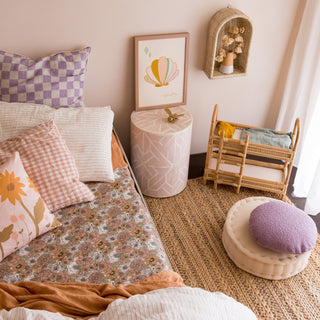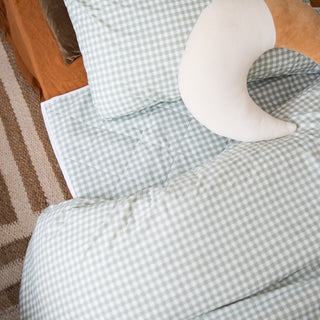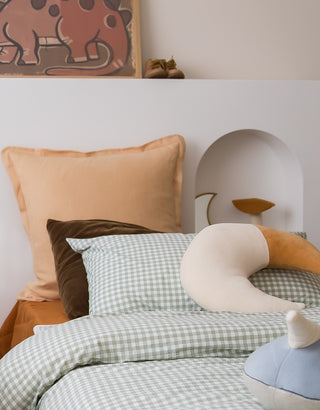One of the best memories a child has of school is often the school camps. However this is often not the case for a child who still wets the bed. According to the Royal Children’s Hospital in Melbourne, 1 in 10 kids still wet the bed by early primary school and around 1 in 20 by upper primary school. That means if a whole year level is away on camp, there could be a whole group of kids who are still wetting the bed. Below are some really helpful and practical tips to help you and your child manage bed wetting while still being able to enjoy school camps.
First Steps
- Preparation. As soon as you find out about the dates for your child’s school camp, it is important to start the discussion with your child. If you are considering alarm training, it needs to be completed 4-6 months before the camp. You can watch a video HERE on alarms. As soon as you start talking and planning for the upcoming camp, the less anxiety your child will have around it.
- Autonomy is key. It is important to note that your child needs to be at the centre of the plan. If they are going on school camp then they are usually old enough to have a say and an opinion. It’s so important we include our child in the discussions and decisions to give them a sense of control. Afterall, they are going to be the one away on camp or a sleepover so they need to be comfortable with the plan that has been put into place.
- Inform the school. If your child is going on school camp then you would have filled out a medical form. This is where you can write any notes about your child’s health and where you need to include information regarding your child’s bed wetting. However it is not enough to simply record it on the form. Contact the school and ask to have a meeting with the camp coordinator, where you can discuss your own child’s individual needs and circumstance. It’s also important to include your child in this meeting, to avoid them feeling like they are being spoken about behind their back.
- Have a plan. This plan is to be created by you and your child together. Things to consider are; what do I do at night time to help me not wet the bed? what happens if I wet the bed? Who do I tell if I wet the bed? What do I do with my wet sheet/pyjamas? By considering these questions together, you can then come up with a plan that your child agrees to. It’s a great idea to actually write it up, and that way you can also pass this onto the school so you are all on the same page.
- Role Play. It is incredibly powerful to have children role play, or act out scenarios that might happen, to allow them to practise the situation without it happening in real life. Read through your plan together and act out the different scenarios. For example if they are going to be sleeping in a sleeping bag at camp, get them to practise lying in their sleeping bag and then pretend they have had an accident. What will they do? This empowers the child to know what to do should the scenario come to fruition.

Practical Tools:
- Social Story. I am a huge fan of social stories as they worked so well for me as a teacher, but also as a mum. You can read more about social stories HERE. Together with your child, write a social story about camp and include the different scenarios. This is also a great way to include photos and names of the people your child can go to if they have an accident. For example on page it might read something like, ‘if I have an accident, I can go to Mrs Brown and she will help me’, and include a photo of Mrs Brown. You can also include handy tips for how to handle certain situations such as, ‘if my friends ask me why I am going to see Mrs Brown, I will tell them I need to have my allergy medication’. One of the biggest worries kids have with wetting the bed on school camp is the other kids finding out. A social story is a great way to prepare and empower children with responses or comebacks they could use in a situation.
- Night Nappies. Some children might already be using night nappies, however some children who only wet the bed occasionally might not be using them. They can be a great short term tool for things like school camps. They are a little piece of mind and assurance so that an accident doesn’t occur. However it’s really important that the child gives full consent, as sometimes the idea of a nappy can be more stress inducing than the idea of having an accident. If your child likes the idea, get them to wear it at home for a few nights before camp, so they get used to the feel. They can also wear undies or boxer shorts over the top to conceal it further.
- Spare Everything! It is so important that your child has adequate changes of pyjamas, nappies, undies, sheet protectors…whatever they might need for night time. This will also give the child piece of mind knowing they have plenty of spare options.
- Pack Plastic Bags. If a child does wet their bed, plastic bags allow the to wrap their PJs up discretely and pop them back in their bag without them wetting anything else. Plastic bags are also good at concealing smells, so if they tie it up tightly they can pop it back in their bag without anyone knowing.
- Sheet Protectors. Bed Mates without wings are the perfect insurance policy for your child (and you!). They take away the stress of getting a mattress wet and because of their beautiful designs, they don’t look like a bed wetting sheet. They are super soft and luxurious with gorgeous prints so your child can bring one along and say that it is their special bed pad they use to make beds for comfortable to sleep on. Little does anyone know they are waterproof and absorbent! You can view the full range HERE
School camps provide such valuable experiences for our children as well as memories that often last a life time. Wetting the bed should never stop a child from experiencing what life has to offer. I hope the above tips help you and your child, so they don’t have to be held back by something that every child experiences at some point!

Click here to watch a live interview I did with paediatric nurse Ariella Lew, where Ariella covers even more tips and advice for dealing with school camps and sleepovers.


